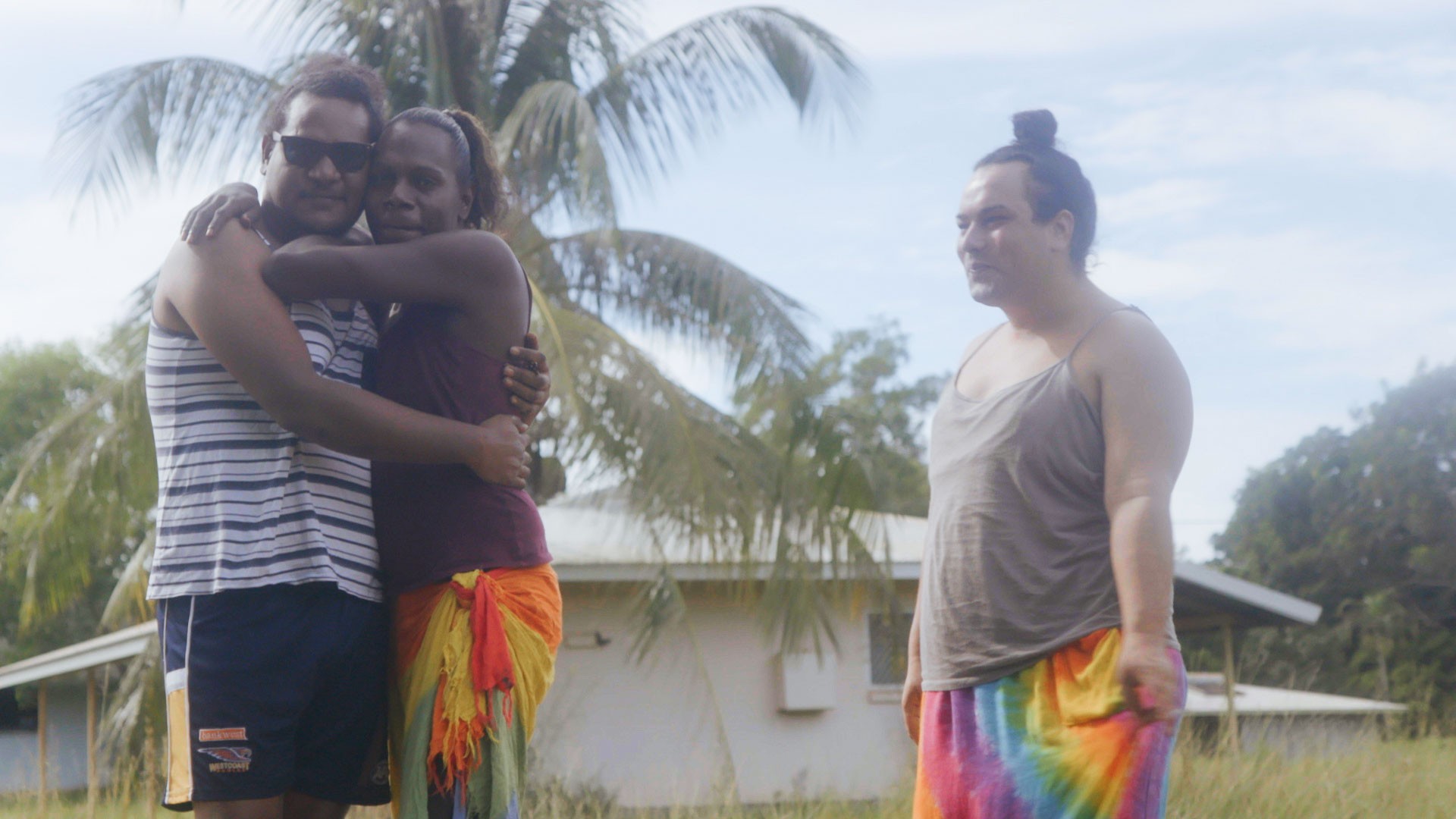In our latest series, Australiana, VICE is exploring national identity beyond the stereotypes. There are no cork hats or shrimps on the barbie here, we're letting Australians tell their own stories, free of national myth or propaganda. On last year's International Women's Day, VICE reported that Indigenous women in Australia encounter severe levels of discrimination and disadvantage. A year on, many of the statistics discussed remain the same, or worse.Speaking to VICE today, Dr Jackie Huggins, Co-Chair of the National Congress for Indigenous Peoples, agreed that the situation feels much the same. "I think very little has changed," she said. "There's actually been an increase in incarceration rates and violence. Things are getting worse, rather than better."An historian and author, Jackie Huggins is a Bidjara (central Queensland) and Birri-Gubba Juru (north Queensland) woman who has worked in Aboriginal and Torres Strait Islander affairs for over 30 years. An advocate for women's rights, she notes Indigenous women face more challenges than any other sector of Australian society."Aboriginal women remain the most legally disadvantaged group in Australia. They are the highest prison population in the country, and that has to change," she says. "Aboriginal people constitute three percent of the national population, but in terms of violence Aboriginal women are 34 times more likely to be hospitalised for family violence related incidents and 10 times more likely to die from violent assaults than other Australian women."In anyone's terms, this is a national crisis, and it leads to a devastating impact on families and communities."According to Huggins, Aboriginal women have been invisible to policy makers because governments are not engaging or listening to Aboriginal women nor hearing their voices. "We need to remember all these people behind the horrible statistics are mothers, daughter, sisters, and aunties."
On last year's International Women's Day, VICE reported that Indigenous women in Australia encounter severe levels of discrimination and disadvantage. A year on, many of the statistics discussed remain the same, or worse.Speaking to VICE today, Dr Jackie Huggins, Co-Chair of the National Congress for Indigenous Peoples, agreed that the situation feels much the same. "I think very little has changed," she said. "There's actually been an increase in incarceration rates and violence. Things are getting worse, rather than better."An historian and author, Jackie Huggins is a Bidjara (central Queensland) and Birri-Gubba Juru (north Queensland) woman who has worked in Aboriginal and Torres Strait Islander affairs for over 30 years. An advocate for women's rights, she notes Indigenous women face more challenges than any other sector of Australian society."Aboriginal women remain the most legally disadvantaged group in Australia. They are the highest prison population in the country, and that has to change," she says. "Aboriginal people constitute three percent of the national population, but in terms of violence Aboriginal women are 34 times more likely to be hospitalised for family violence related incidents and 10 times more likely to die from violent assaults than other Australian women."In anyone's terms, this is a national crisis, and it leads to a devastating impact on families and communities."According to Huggins, Aboriginal women have been invisible to policy makers because governments are not engaging or listening to Aboriginal women nor hearing their voices. "We need to remember all these people behind the horrible statistics are mothers, daughter, sisters, and aunties." Huggins is involved in a campaign called Change the Record, a coalition of organisations involved in addressing the disproportionate rates of incarceration and violence experienced by Indigenous Australians through investment in early intervention, prevention and diversion programs.While the statistics are grim, Huggins says that International Women's Day should still be about celebration and hope. "Today is a time to reflect on the strengths and resilience of Aboriginal people in face of a huge adversity that they're presented in life, and their ability to keep going despite these horrible statistics and try and make better lives for themselves."Huggins draws attention to the extraordinary work of Aboriginal women legal workers like Shirley Slann, who is dedicated to issues of domestic and family violence, and June Oscar, a Bunuba woman from the Central Kimberley region who has lobbied for alcohol restrictions in her hometown of Fitzroy Crossing in an effort to combat alcohol related violence."Another name to recognise is that of Antoinette Braybrook, the inaugural CEO of the Aboriginal Family Violence Prevention and Legal Service, who has been working in that field for many years now."Academic groups like the Australian Institute for Aboriginal and Torres Strait Islander Studies are also taking the opportunity to draw attention to the strength of Indigenous women past and present, with their 2016 International Women's Day poster depicting an iconic photograph of Teenminne, a Ngarrindjeri woman who lived at Point McLeay in South Australia in the late 1800s.
Huggins is involved in a campaign called Change the Record, a coalition of organisations involved in addressing the disproportionate rates of incarceration and violence experienced by Indigenous Australians through investment in early intervention, prevention and diversion programs.While the statistics are grim, Huggins says that International Women's Day should still be about celebration and hope. "Today is a time to reflect on the strengths and resilience of Aboriginal people in face of a huge adversity that they're presented in life, and their ability to keep going despite these horrible statistics and try and make better lives for themselves."Huggins draws attention to the extraordinary work of Aboriginal women legal workers like Shirley Slann, who is dedicated to issues of domestic and family violence, and June Oscar, a Bunuba woman from the Central Kimberley region who has lobbied for alcohol restrictions in her hometown of Fitzroy Crossing in an effort to combat alcohol related violence."Another name to recognise is that of Antoinette Braybrook, the inaugural CEO of the Aboriginal Family Violence Prevention and Legal Service, who has been working in that field for many years now."Academic groups like the Australian Institute for Aboriginal and Torres Strait Islander Studies are also taking the opportunity to draw attention to the strength of Indigenous women past and present, with their 2016 International Women's Day poster depicting an iconic photograph of Teenminne, a Ngarrindjeri woman who lived at Point McLeay in South Australia in the late 1800s.

Advertisement
Advertisement

Advertisement
Also in honour of International Women's Day, NITV has composed a list of 20 inspiring Indigenous women whose visions have shaped Australian society. The list includes Faith Thomas, the first Aboriginal woman to play international cricket for Australia and as such, was the first Indigenous woman to be selected to play any sport for Australia, and activist Shirley Colleen Smith, a founding member of the Aboriginal Legal Service, Aboriginal Housing Company, Aboriginal Tent Embassy, the Aboriginal Children's Service, and Aboriginal Medical Service.The first International Women's Day was held in 1909 and organised by the Socialist Party of America. In 2016, International Women's Day is endorsed by the United Nations and aims to celebrate the diverse voices of women all over the world. For advocates like Huggins, it's especially about recognising the strength of those who have overcome adversity and structural inequality.As Jackie Huggins says, "We still have to acknowledge that for every social indicator, it's still a day to celebrate the resilience of women and girls in our country."Follow Kat on Twitter.
